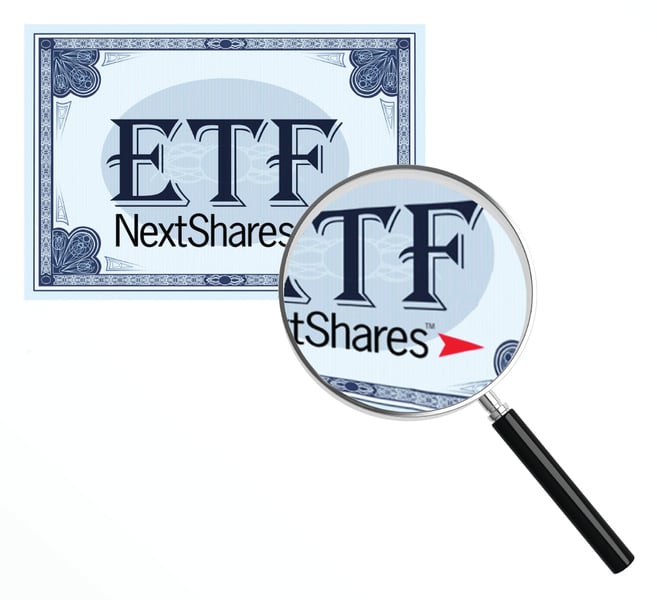Eaton Vance Corp.'s NextShares experiment kicked off at the stock market's open on Friday with the first-ever exchange-traded mutual fund, which is already receiving some skeptical reviews.
The Eaton Vance Stock NextShares (EVSTC) is an actively-managed fund inside an ETF wrapper that allows for trading throughout the day, unlike a mutual fund, but with some of the cost-saving advantages of an ETF.
Key to the success of this
hybrid product will be both investment performance and a glitch-free trading debut, according to market analysts.
“We think it's a structure that takes advantage of what ETFs offer, and it could make a good product, but it does seem like the market appetite is a little tepid at this point,” said Rory Callagy, vice president and senior credit officer at Moody's Investors Service.
While he acknowledged the
enhancements to the actively-managed mutual fund model, Mr. Callagy said the NextShares product is still swimming against the current at a time when investors are increasingly favoring passive-investment strategies.
“The migration theme is of money moving to passive management, and Eaton Vance might be trying to capitalize on that by providing a more efficient wrapper, but they're still packing it with the same old management,” he added. “A lot of the talk has focused on the vehicle, which is a better solution if you get enough critical mass, but the big picture is it's still going to be an active product depending on manager talent, and whether they can deliver value beyond the fees they charge.”
Stephen Clark, president of NextShares Solutions, responded by pointing out that any NextShares fund is likely to have an existing track record.
“And, if this is a question of active versus passive, this structure is designed to make active more competitive because it seeks to lower operating expenses,” he said.
Todd Rosenbluth, director of mutual fund and ETF research at S&P Capital IQ, said despite early hype around the NextShares product, it is ultimately being rolled out as a test case without much of the support that was originally anticipated.
“There is legitimate skepticism about how these things will trade and it has become a test case for the market,” he said.
In January,
Eaton Vance announced that 12 investment advisers, including Columbia Threadneedle, Pioneer Investments and the Gabelli funds, have all indicated their intent to offer NextShares funds.
The $308 billion Boston-based money manager has registered 18 NextShare funds across all asset classes. But the debut still comes down to the first fund being managed by veteran Eaton Vance portfolio manager Charles Gaffney.
The new fund will also only be available on the Folio Investing platform.
“I think the original plan was to be Eaton Vance as well as other asset managers offering NextShare funds,” said Mr. Rosenbluth. “And right now there's only one broker-dealer willing to trade this, so if you clear through a different broker-dealer, or work at a wirehouse you can't buy it. So, it's less important how this product performs in the next month and more that it trades without hiccups in the execution so they can show the other asset managers and BDs that this works.”
Mr. Clark of NextShares acknowledged that the Folio platform is the only broker-dealer currently trading the NextShares fund, but said that's a temporary situation.
“We would expect that to evolve over time and broaden out to more broker-dealers,” he said. “We are in active conversations with broker-dealers, and we plan to over NextShares on other platforms in coming weeks or months. Eventually, we expect this will be available everywhere.”
Regarding the potential for other companies to launch NextShares funds, Mr. Clark cited the fact that a dozen companies have already received exemptive relief to offer NextShares.
“Those companies are in various stages of organizational readiness,” he said.







